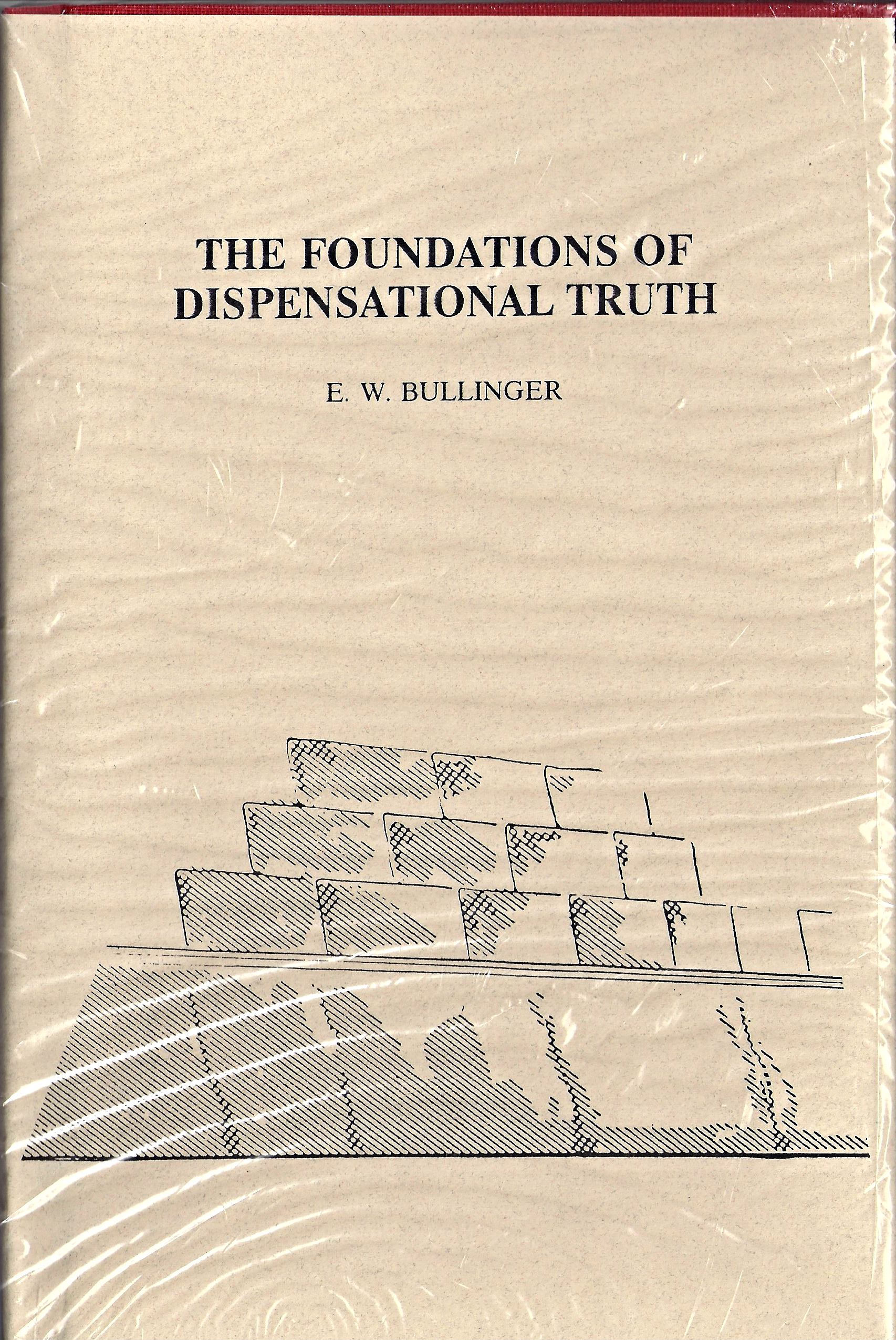Currently we accept orders for domestic delivery only.
If you are located outside the United States and wish to make a purchase, please contact us or mail us at:
Truth For Today, Inc., PO Box 607, West Union, SC 29696
or call Ph. # 864-638-8780
Foundations of Dispensational Truth
Foundations of Dispensational Truth
By Dr. E.W. Bullinger
Book Review by Robert Guenther
Dr. Bullinger’s last book written. It contains his best understanding of the subject of right division. This principle is the basis for answering questions concerning the hopes which belong to Israel (I Thess. 4:17, Matt. 4:17, Heb. 12:20) and the inheritance we as body members embrace. (Eph. 1:4-7, 2:6).
Dr. Bullinger’s purpose is for to be grounded in the truth of II Timothy 2:15: “Study to show thyself approved unto God, a workman that’s needeth not to be ashamed, rightly dividing the Word of truth.” The division that the Apostle Paul is referring to has to be made at Acts 28:28 and not before. Much confusion concerning sign gifts and ordinances is removed when we interpret the last seven epistles that Paul wrote as belonging to this present dispensation (Col. 2:14-23, Eph. 4:13,14).
Our book begins by mentioning this one great fact: God hath spoken (Heb. 1:1,2). Our job is to find out when, how, and to whom the books of the Bible are written. Only then can we begin to understand the importance of right division. In the beginning God spoke directly to man. Later, He used Moses to speak to the fathers of Israel, or the Hebrew nation. Then we have the prophets from the book of Exodus to Malachi. The Son is the spokesman for God in the four gospels. During Acts times, the Lord’s apostles preached the kingdom gospel, and this message was confirmed with sign gifts. Finally, after Acts, we have Paul chosen to reveal “the secret” that was hid in God since before the foundation of the world.
Our next topic is the study of the three spheres of blessing:
1) Restored earth – II Peter 3:10-13
2) Heavenly city – Rev. 21:2, Heb. 11:13
3) Heavenlies – Eph. 1:20-23
We should be looking for the high calling (Philippians 3:14) and not trying to make Israel’s promises ours.
The last point made clear is that Paul was given the commission to make all men see what is the fellowship of the Mystery (Eph. 3:9). The author suggests that Ephesian, Philippians, Colossians, and II Timothy, which were written after Acts 28:28, “belong in a special manner to the present dispensation.” There is no further revelation or late instruction given by God for us to follow.
It is the writer’s prayer that we have our feet on the solid rock and be not moved away from the gospel that was given unto Paul. There may be suffering, but we shall not be ashamed when we stand before our Lord at his appearing if we rightly divide His Word.

